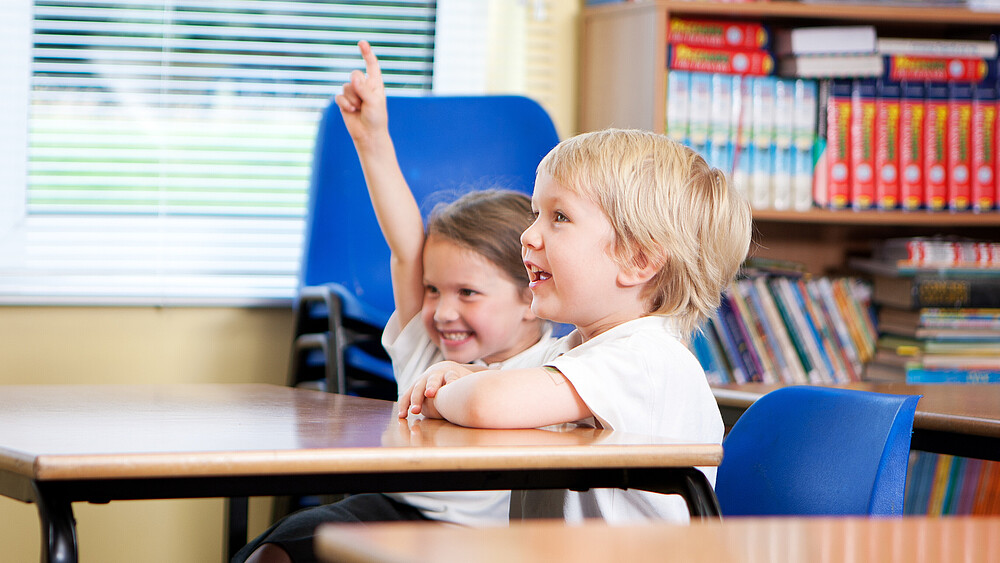Culture and management students develop methods for coping with stress and strengthening the joy of learning in primary school children.

All over the world, children of primary school age are increasingly showing symptoms of psychological stress and so-called "mental disorders" (anxiety, self-doubt, depression, etc.). The reasons for this include the sensory overload caused by digital media and the general crises of the present day.
However, these impairments to young people's learning and lives are not a matter of fate. They call for effective methods to counter them and equip pupils with emotional resilience and self-regulation skills. This can sustainably strengthen their enjoyment of life and learning, as well as their learning abilities and results. This is the conclusion of a study conducted by an Australian university with over 700 children.
As part of this study, a practical methodology was also developed to teach primary school children the skills of emotional self-regulation in just 10 weeks with 10-minute exercises every school day.
As part of a collaboration between the Reallabor Friedliche Bildungsrevolution, Techniker Krankenkasse and a research seminar of the Culture and Management course at Zittau/Görlitz University of Applied Sciences, this method was specifically prepared in such a way that it can be easily applied in everyday school life by teachers or learning guides who are committed to it.
The method comprises the following 5 phases of 2 weeks each:
Phase 1: Relaxation breathing (weeks 1 and 2): Children learn to breathe slower, deeper and more relaxed, while becoming aware of body sensations and regulating their nervous system.
Phase 2: Affirmations (weeks 3 and 4): Children learn to use positive autosuggestions to boost their self-confidence and practice kindness towards themselves and others.
Phase 3: Heart-centered coherence (weeks 5 and 6): Children learn to become aware of their emotions and feel higher emotions such as gratitude, kindness and love.
Phase 4: Shifting focus (weeks 6 and 7): Children learn to keep an open mind, allowing them to remain generally open-minded and curious.
Phase 5: Change Game (weeks 9 and 10): In this game, children learn how to deal with difficult emotions, as well as the ability to change them in themselves.
These five phases are presented in more detailhere. Interested parties are welcome to simply use the detailed instructions as they are or adapt them for themselves. When using the method, it is important to generally create a pleasant and relaxed atmosphere.
To make it easier to use, five short instructional audios have been produced. The links can be found in the instructions for the individual phases.
The team would be very pleased to receive specific experience reports or information on possible variations. Please contact Prof. Maik Hosang.